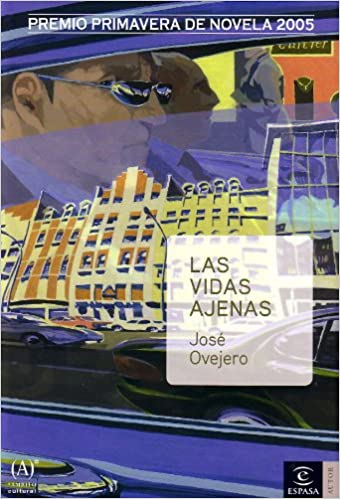Multidisciplinary writer, capable of moving from one literary genre to another, comfortable in any creative facet that involves delving into prose or verses that for him are simply hidden under the blank pages, as happened to Michelangelo with the marble under which he lived. his David.
I mean Jose Ovejero the poet-essayist-novelist-playwright and short story writer. An author who shows that to write you always have to have something to tell; and if you already use any tool to be able to do it, all the better.
In any case, the fundamental area for which I bring it to this blog is its novelistic facet, where we find an author who delves into current life, about the masked alienation between imposed happiness and that strange amalgam of memories, lost paradises and the vague hope to find them again.
A hope that, despite its vagueness, ends up moving the characters in his novels towards lost causes or small affronts that end up mutating towards vital foundations and redirecting their stories towards the brilliance of the anecdotal, the fundamentals of chance and the transience of everything. .
Top 3 recommended novels by José Ovejero
The invention of love
Samuel could be any of us looking into the crisis of the forties, if there is such a crisis and if it cannot happen at any other age.
The point is that Samuel is a type settled in life, with his routines, his love affairs, his responsibilities, his friends and ... his emptiness.
Because it is already known that sometimes we fill ourselves with things that only end up filling like stones in a glass jar, until the day comes when Samuel stops to look behind his glass to discover the large gaps. And of course, nothing better than building a farce taking advantage of a favorable wind to move it towards God knows what new journey.
An old lover who was not her and who is now dead, a sorrowful sister who finds in the one who supposes that she loved her sister a support for her particular tragedy.
An official life of Samuel that little by little enters into recession and a mother with dementia to whom he ends up telling his last miserable farce. Only she, Carina, Clara's sister, has come to occupy a strange place in the middle of the histrionic representation of her.
And Samuel no longer knows if he can leave the scene by exiting the forum or if he can assume that he may be able to write a different libretto under a new soundtrack of his tired soul.
The lives of others
One of those novels that is not surprising because it is unexpected. The noir genre, that great magnet that attracts a multitude of authors in search of commercial success, becomes in the hands of Ovejero an excuse to navigate more intimate spaces in the motivations of evil.
Beneath the apparent superficiality and cynicism of Lebeaux, a regular businessman in B and a close friend of the straw men with whom they protect their most illicit investments, we discover a strange powerful man who has been weakened by discovering elongated familiar shadows.
In your hands comes a compromising photograph of the most ominous family businesses in the Belgian Congo. The blackmailers who send it to you are waiting for your money.
But from that moment on, a typical crime novel has not been deployed. From a Brussels that the author knows well, a human map is drawn about business, corruption and the strange feeling of lack of control that can govern a guy who thought himself safe from everything.
Delinquent writers
History is littered with writers who are signified by many other anomalous aspects beyond their outstanding creation. And if not, the official biographies will take care of extolling the anecdotal until elevating it to another more transcendental category.
The point is that Ovejero traces a diagonal in the History of Literature. In his particular line, Ovejero links many authors who experienced sad or strange circumstances that, furthermore, were necessarily reflected in his work. The strange, the different from the supposed normality offers much more literary argument.
And in those they walked Mutis, Burroughs or others. Maybe they were looking for arguments to write about or maybe their literary demons jumped onto the scene of reality ...



